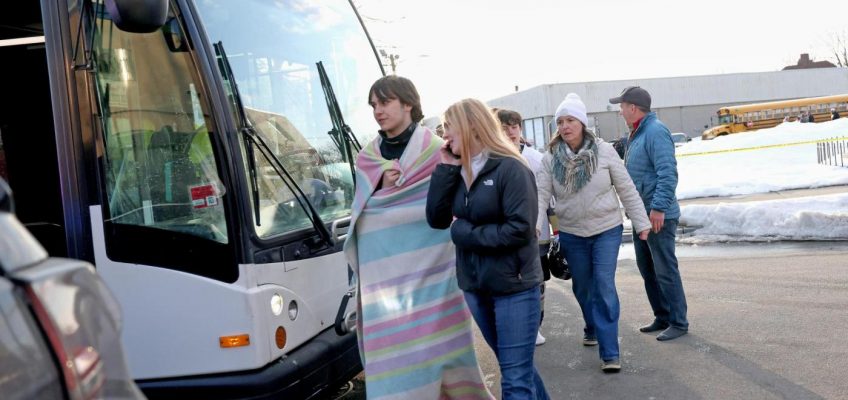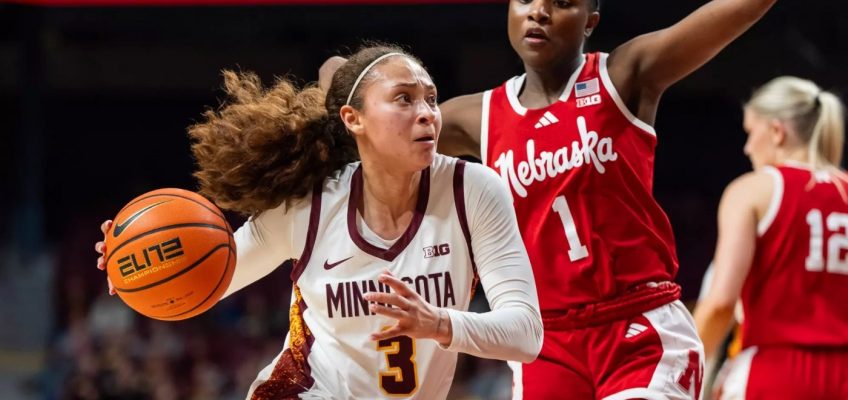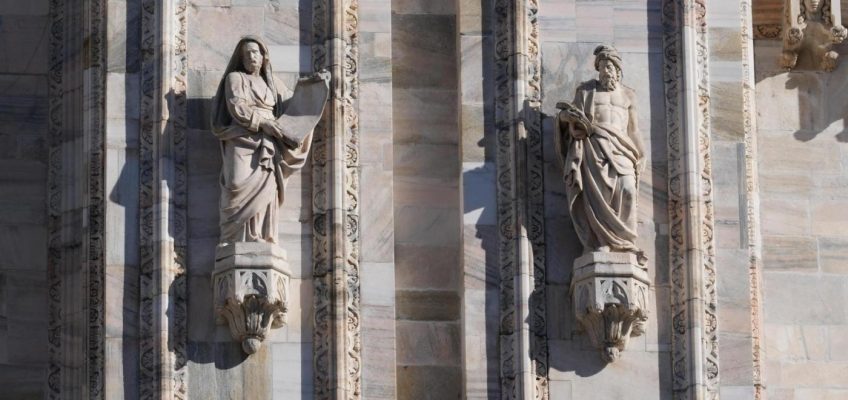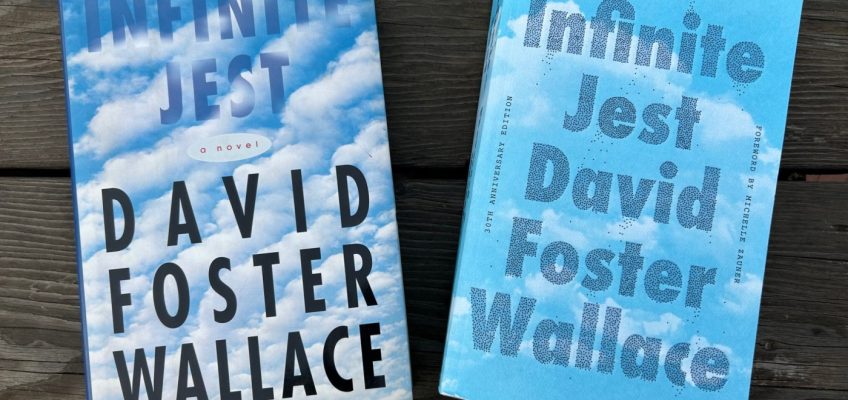Years ago, I taught English as a Second Language at a pair of schools in Southern California that drew learners from around the world. The students were an absolute joy, enthusiastic about being in America and eager to learn all about our ways (and, especially if they were young men, maybe pick up a cool curse word or two they might not already be familiar with).
As one of the first Americans they got to know, I always felt a responsibility to be a good ambassador, aware that some of them would only be here for a short time and then go home to share their experiences with family and friends.
So I tried to be available to answer questions before or after class on a range of subjects, both linguistic and cultural, striving to be a welcoming host and an accurate provider of information. (Though I’ll admit one time, while stuck in LA traffic with a bus full of disappointed kids whose trip had provided no glamorous Hollywood experiences, I may have tried to boost morale by pointing out a bunch of incredible sites — Marilyn Monroe’s house! Steven Spielberg’s favorite restaurant! Eddie Murphy’s podiatrist! — we miraculously happened to be passing by … though how accurate these locations were I’ll leave to your imagination.)
Anyway, during my lunch breaks, I’d wander outside to a quiet spot to read before heading back to class. And for one seemingly endless stretch of weeks, I worked my way through the just-published “Infinite Jest,” David Foster Wallace’s 1,079-page behemoth.
Every day, I’d take the huge book, whose cover was decorated with fluffy clouds floating in a powder-blue sky, and pore over it, flipping back and forth from the main text to the 388 endnotes at the back (Pro tip: You need two bookmarks to read it), in hopes of finishing it before I retired.
One day, as I came back inside, a student stopped me, clearly moved by something. I was, he told me seriously, a good person.
Figuring this was a prank — there were some hilarious kids, among them — I brushed it off with a joke.
No, I’m serious, the student told me. We see you out with your book, thinking and studying. Every day, you go out and read your bible. So good.
Yes, I go out and …wait, what?
Then I understood: the blue sky, the fluffy clouds, the sheer heft. All those weeks of me inside the book’s dense pages, they’d thought I’d been studying the Bible.
I’d spent 12 years in parochial school, so you’d think I would have made the connection sooner. But to be fair, the King James edition is actually shorter (at least in some editions).
I was sorry to burst his biblical bubble, but I think some of the kids now felt more at ease coming to me with their questions about profanity and its proper usage.
Thirty years later, “Infinite Jest” has become something of a holy text to some, as well as a range of other things to others: a late 20th-century classic; a misogynistic signifier of toxic masculinity; or a novel whose legacy and reputation have been tainted by reports of abusive, controlling behavior toward women by its author, who died by suicide in 2008.
In a new introduction to the anniversary edition, Michelle Zauner, bestselling author of “Crying in H Mart” and the singer and songwriter of Japanese Breakfast, doesn’t shy away from its complicated legacy, as well as why she might have been chosen to write the new introduction.
“I’m sure Little, Brown was aware of the slight incongruity of their selection, and perhaps hoped I might assist in assuaging the unfair, outsize connotations of what it means to be a David Foster Wallace reader, which, at its worst, has come to signify misogyny, and at its best, someone who’s just slightly annoying.”
Sally Kim, the president and publisher of Little, Brown and Company, had this to say to us about the book, via email:
“We deem books ‘classics’ for various reasons, but ‘Infinite Jest’ endures because it’s so singular, it didn’t abide by the rules of its time, and it’s as living and breathing now, and ever evolving, as it was when it was first published,” she said. “What a joy and privilege to watch so many readers continue to engage so fully with the book, 30 years later, and for it to continue to be a tremendous part of Little, Brown’s publishing program.”
SEE ALSO: 27 independent press books to add to your 2026 TBR list
While declining to respond to a question about Wallace’s personal behavior or the book’s perceived popularity among a certain type of toxic male, Little, Brown did connect me with someone who’d played a role in the book’s genesis.
Michael Pietsch edited “Infinite Jest,” which, when you consider all that text and all those endnotes, seems nearly as gargantuan a feat as writing it. Pietsch responded to my questions about the book via email.
Q. Other good books came out 30 years ago, but not all of them have had the staying power of this novel: Why are we still talking about “Infinite Jest” now?
Excellent books are published every year, but only a tiny few are part of popular discussion three decades later. “Infinite Jest” is one of those rare books because it addresses a giant and timeless question: how can we deal with the pain life brings to each of us and the loneliness of being human. It’s a book that delivers huge emotions and big ideas, in an enormously entertaining form, that makes people want to talk about what they’ve experienced in reading it.
And it was extraordinarily prescient! In writing about some of the main ways people escape pain—through entertainment, alcohol, drugs—it conjured a world very much like today’s. It has a U.S. that has annexed Canada and Mexico, with environmental toxicity and drug addiction run rampant, an entertainer President, and a video entertainment so endlessly compelling that people never look away from their screens. Opioids, Trump, TikTok, more …
Q. Its size and density were a source of discussion 30 years ago when I read it, but our attention spans have been eroded over the ensuing decades: How has that altered how we read and see the book?
The current media environment makes books like “Infinite Jest” more valuable than ever, a kind of necessary alternative. They are immersive, enormous, and deep, a one-to-one mental communion between the reader and the writer that becomes a huge part of who you are.
Q. Do you have any particular favorite moments from the book?
Hundreds! Today I remember one character’s litany of “exotic little facts” learned at Boston AA, including “That sometimes human beings have to just sit in one place and, like, hurt. That you will become way less concerned with what other people think of you when you realize how seldom they do. That there is such a thing as raw, unalloyed, agendaless kindness. “
Also, I remember laughing uncontrollably the first time I read a scene in a halfway house where raw-nerved, newly sober addicts bring complaints about their fellow residents to the house supervisor. The complaints magnify all the kinds of minuscule human horrors that they’ve spent years evading and now have to learn how to deal with. Re-reading it makes me laugh every time. Page 176, check it out.
Q. What do you hope readers will take away from the book now?
That there are ways of getting outside yourself that enrich you rather than depleting you. Connecting with other people, hard though it can be, is the best. And reading a great novel is another. = )




